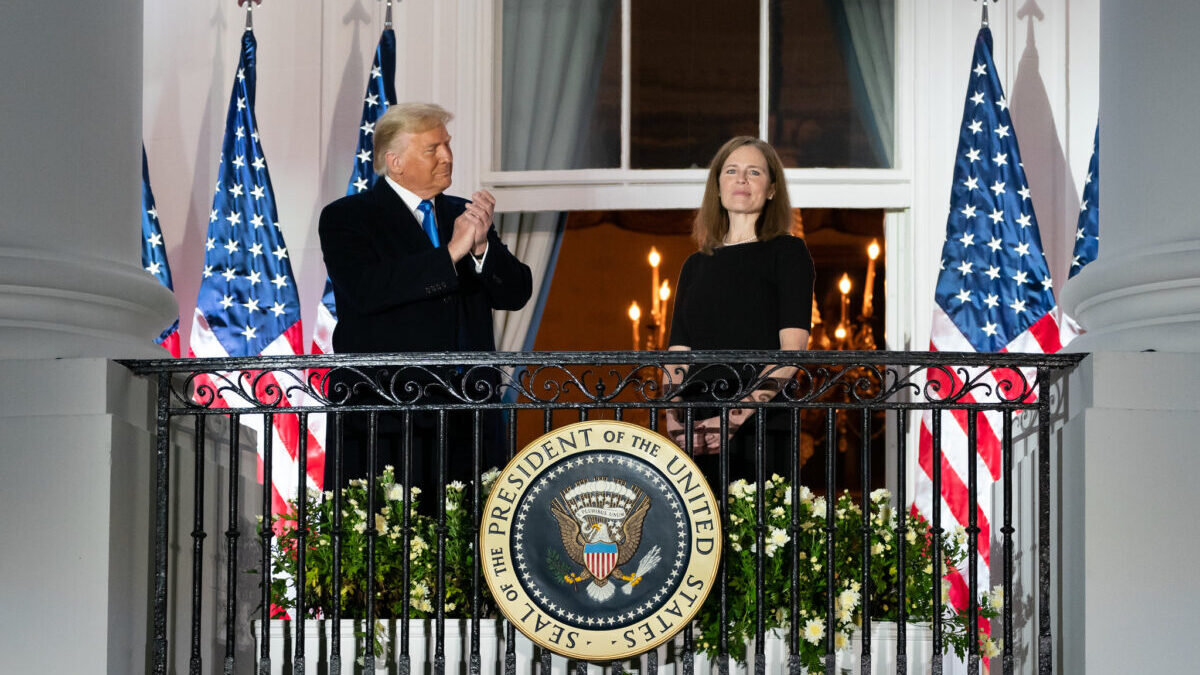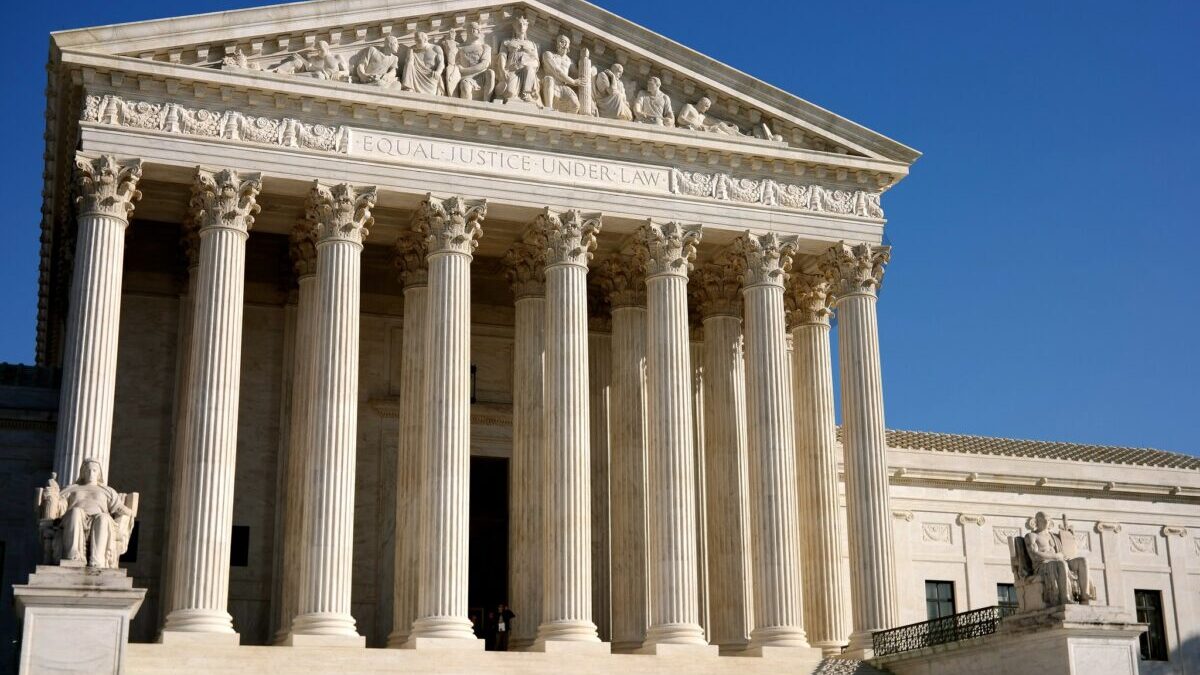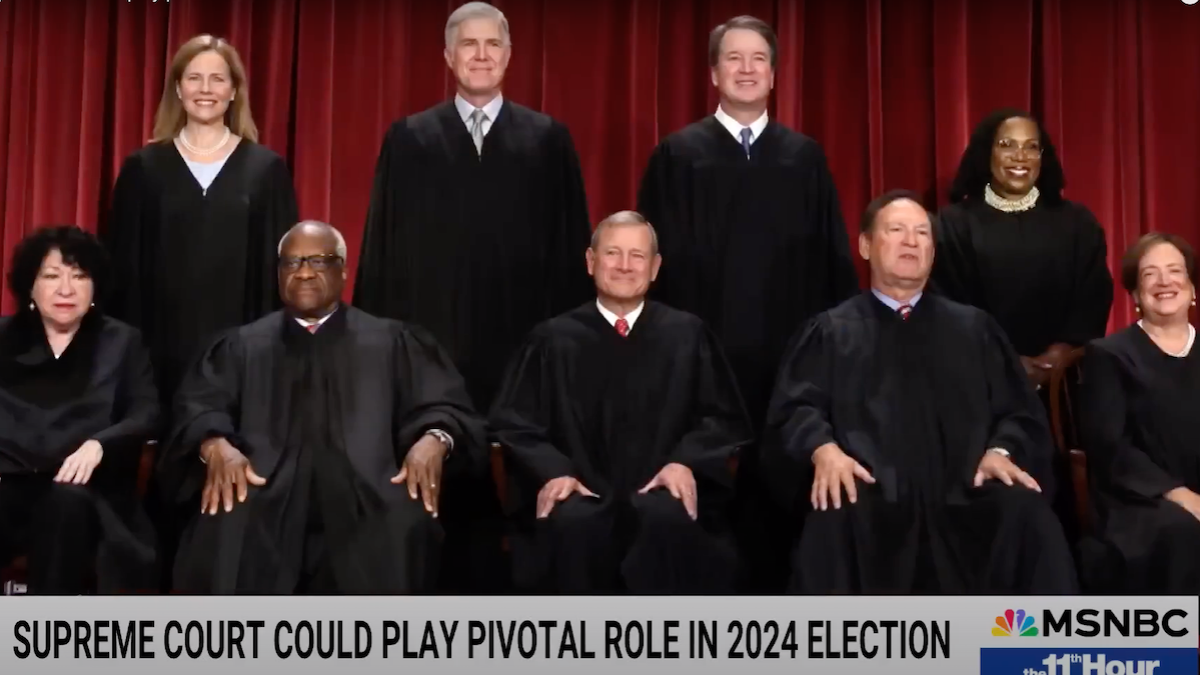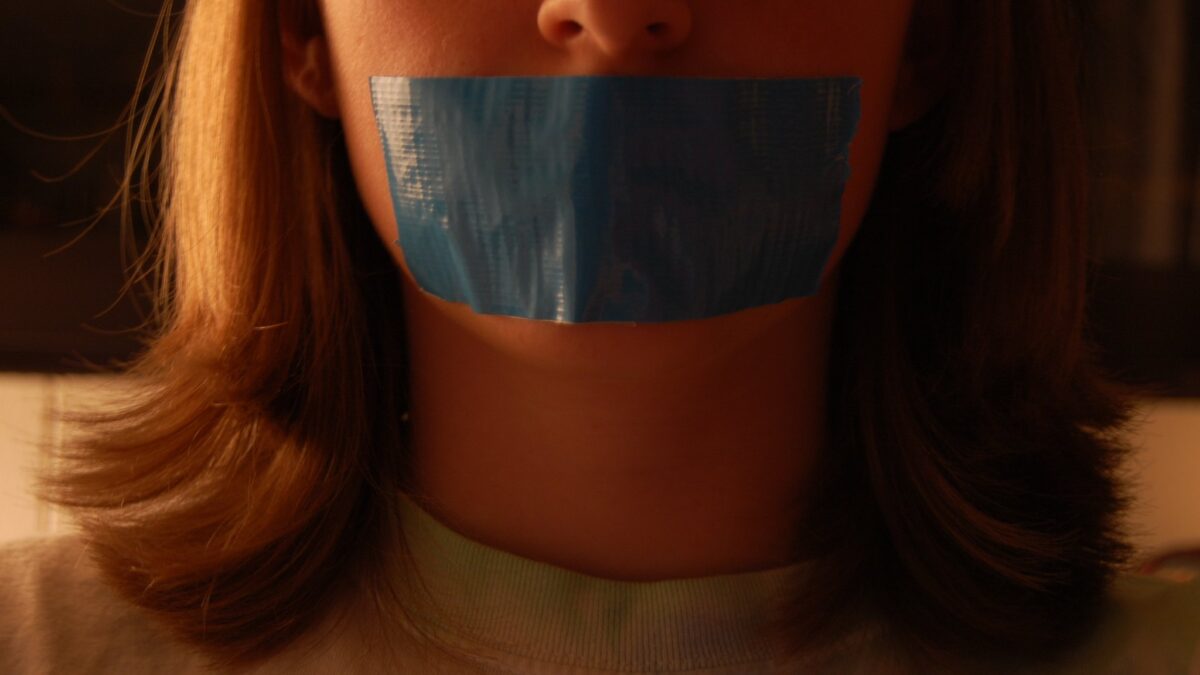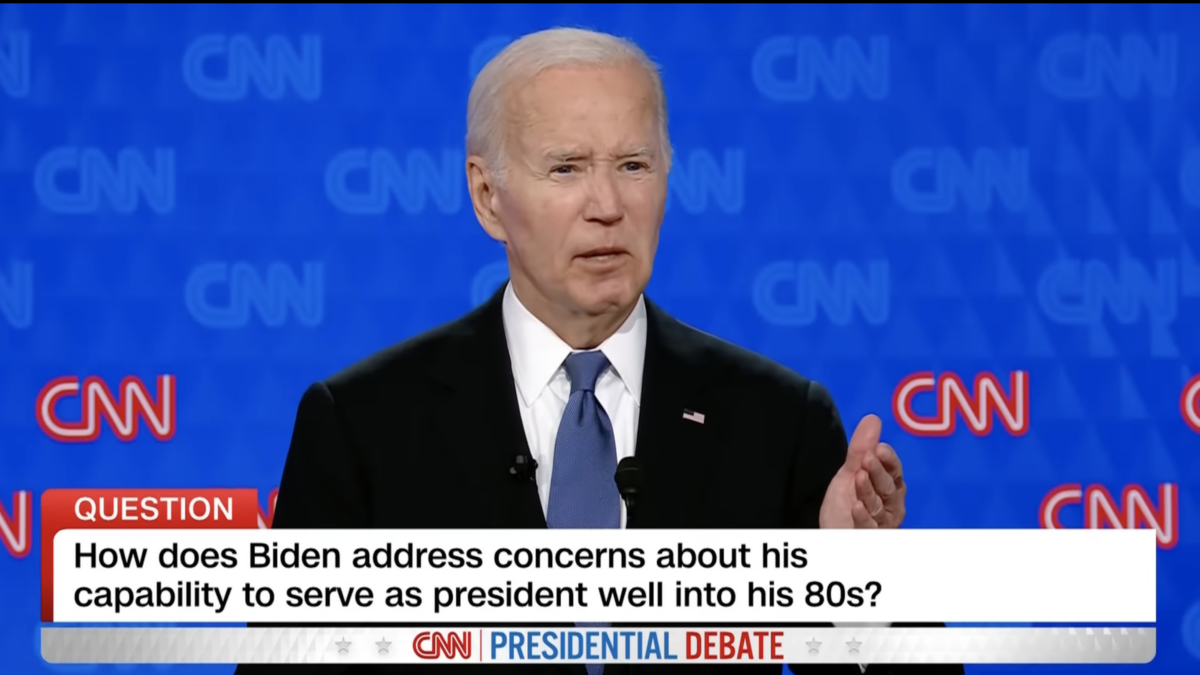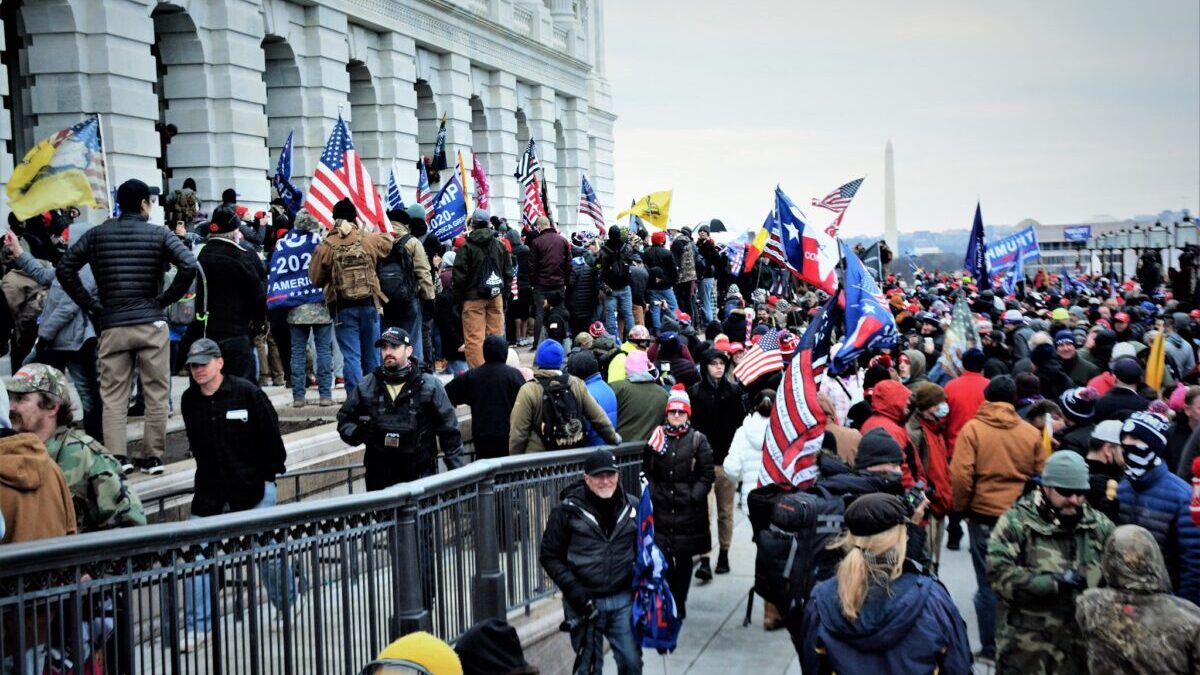
The Supreme Court ruled that the Department of Justice (DOJ) used an inappropriately broad interpretation of a federal statute to prosecute a former police officer who was charged because of his involvement in the Capitol riot on Jan. 6, 2021.
On Friday, the justices delivered the 6-3 decision in Fischer v. United States, ruling Joseph Fischer should not have been charged with “obstruction of an official proceeding” under the 2002 Sarbanes-Oxley Act. The statute has been used by the DOJ to charge more than 300 defendants with felonies in the more than three years since the riot, with the defendants facing a prison sentence of up to 20 years.
Writing for the majority, Chief Justice John Roberts stated that “to prove a violation” of the statute under the Sarbanes-Oxley Act, “the Government must establish that the defendant impaired the availability or integrity for use in an official proceeding of records, documents, objects, or as we earlier explained, other things used in the proceeding, or attempted to do so.”
Justice Roberts warned on Friday that the DOJ’s broad interpretation of the law to lock up demonstrators present at the Capitol on Jan. 6 “would criminalize a broad swath of prosaic conduct, exposing activists and lobbyists alike to decades in prison.”
The case has far-reaching consequences that go well beyond the hundreds of defendants who’ve been prosecuted in the aftermath of Jan. 6 — who now have grounds to appeal the most commonly charged felony from the riot. Two out of four charges against former President Donald Trump filed in Special Counsel Jack Smith’s criminal probe of the Republican candidate are also based on the Sarbanes-Oxley statute. Those charges are likely to either be dropped or invalidated by the courts following the Supreme Court’s ruling.
[RELATED: This J6 Defendant Spent 3 Years In Jail For What The Supreme Court Might Say Isn’t A Crime]
Justice Ketanji Brown Jackson joined five out of the six conservative justices in the majority decision with a concurring opinion, while Justice Amy Coney Barrett dissented.
“Notwithstanding the shocking circumstances involved in this case or the Government’s determination that they warrant prosecution,” Jackson wrote, “… I join in the Court’s opinion because I agree with the majority that §1512(c)(2) does not reach ‘“all forms of obstructive conduct”’ and is, instead, ‘limited by the preceding list of criminal violations.’”
“Given that Congress has never before passed a similarly broad obstruction law when others have long existed, it is highly unlikely that Congress intended for subsection (c)(2) to establish a first-of-its-kind general federal obstruction crime,” Jackson explained.
Justice Barrett wrote the dissent, arguing the federal government had properly applied the “obstruction” terms to criminal defendants charged with crimes related to the turmoil at the Capitol.
The 1512(c)(2) provision for obstruction crimes, Barrett wrote, “is a very broad provision, and admittedly, events like January 6th were not its target. (Who could blame Congress for that failure of imagination?).”
“But statutes often go further than the problem that inspired them, and under the rules of statutory interpretation, we stick to the text anyway,” she added.
Julie Kelly, who has covered the trials of the Jan. 6 defendants since the demonstration, wrote in a post on X that Barretts’ dissent “is mimicking the words of DC judges who claimed the 4-hour disturbance at the Capitol was so unthinkable that Congress never envisioned that such an event would happen so 1512c2 applies.”


